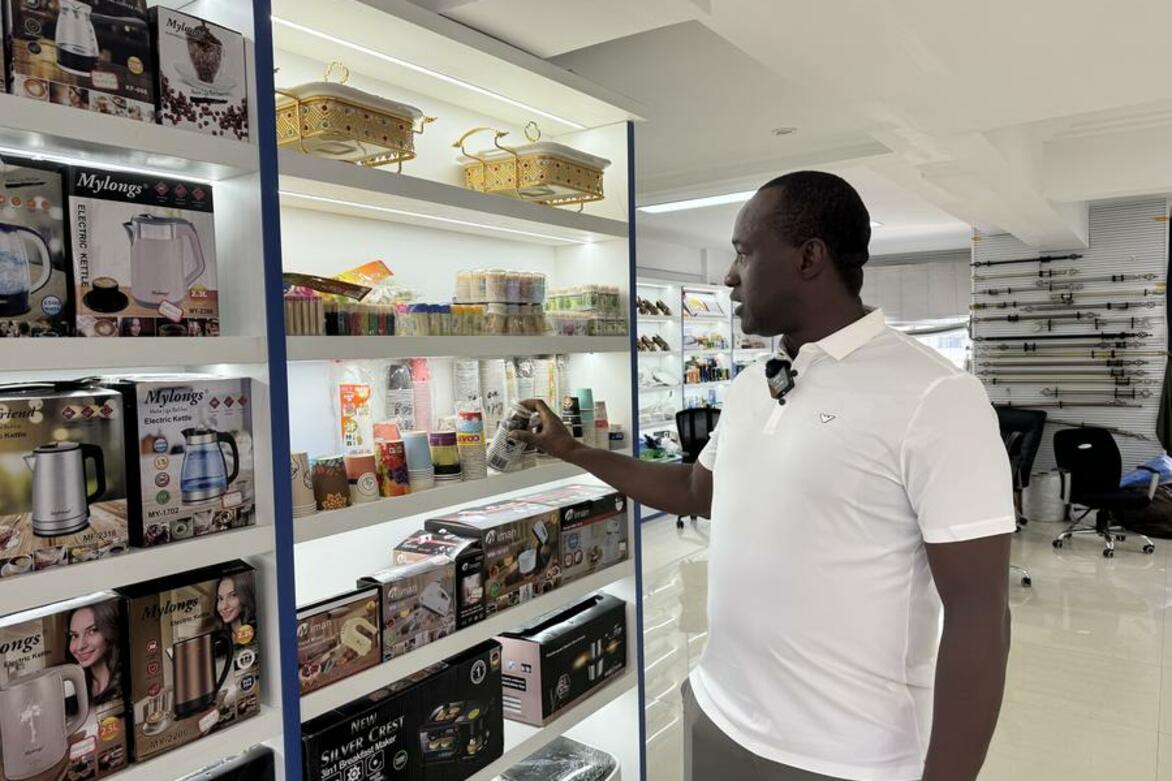Feature: Commercial exchanges fuel new momentum in China-Africa cooperation
Xinhua
14 Jun 2025

A regular traveler between China and Africa, Ma Bijun is often surprised by the increasing number of passengers on these routes. To him, it's a clear sign of deepening economic and commercial exchanges between the Chinese and African peoples.
CHANGSHA/NAIROBI, June 14 (Xinhua) -- "Plane tickets to Africa are in high demand -- there are just so many opportunities," exclaimed Ma Bijun, deputy general manager of Hunan Er-Kang Pharmaceutical Co., Ltd., who has been busy preparing to launch a new pharmaceutical factory in Tanzania this year.
A regular traveler between China and Africa, Ma is often surprised by the increasing number of passengers on these routes. To him, it's a clear sign of deepening economic and commercial exchanges between the Chinese and African peoples.
Since its launch in 2019, the Guangzhou-Changsha-Nairobi route operated by China Southern Airlines has transported over 227,000 passengers and now maintains three regular weekly flights. To meet rising demand during the peak travel season, the airline also plans to open a direct Nairobi-Guangzhou route this summer.
This vibrant interaction has broadened the scope of China-Africa economic and commercial cooperation, bringing fresh vitality to friendly relations.
In just three days, Kenyan coffee beans can now reach Changsha, capital of central China's Hunan Province, infusing their unique aroma into Gaoqiao Grand Market. As flagship agricultural products, African coffees are enjoying a boom, with imports to China rising 70.4 percent year on year in the first quarter of 2025.
At the African Coffee Trade Center in Gaoqiao, the "Own Master" brand offers over 30 beverages made from Ethiopian, Kenyan and other African coffee beans.
"Today, we connect directly with coffee producers in Africa via online platforms, which streamlines the process and lowers overall costs," said brand manager Jing Jianhua. He said the company's imports of green coffee beans from Africa rose 30 percent last year compared to the previous year.
Beyond traditional sectors, new players are injecting a "green wave" into China-Africa cooperation. With sustainable development gaining traction across Africa, China's exports of new energy vehicles, lithium batteries and photovoltaic products to Africa in 2023 surged by 291 percent, 109 percent and 57 percent year on year, respectively.
"These are the 100 new energy vehicles I ordered from China -- they're incredibly popular in Dakar," said Tirera Sourakhata, a Senegalese entrepreneur who founded a ride-hailing company using new energy vehicles in the capital.
"Seeing China's streets filled with new energy vehicles makes me hope for the same in Senegal," he said. He believed these vehicles would not only reduce costs and create jobs but also be more environmentally friendly.
Sourakhata has been living and doing business in Yiwu, a bustling trade hub in eastern China's Zhejiang Province, for over 20 years. From his first hardware purchase there, he was impressed by the quality and price of "Made in China" goods, and has witnessed the flourishing of China-Africa trade firsthand.
At his company's showroom in Yiwu, thousands of products are on display, including photovoltaic panels, solar streetlamps, consumer goods and household appliances. The company's annual exports to Africa have grown from just a few dozen containers to over 4,000 today. "That number will only keep growing," Sourakhata said.
Chinese e-commerce models are also making headway in Africa. Regarded as a high-potential market, the continent shows strong momentum.
"Livestreaming lets us attract wide audiences and better understand their needs in real time," said Nancy Kariuki, an influencer on Kilimall, a major East African e-commerce platform, whose livestream often draws over 10,000 views per day, an impressive figure in the region.
Kariuki pointed out that everything from electronics to clothing and footwear is just a click away. "E-commerce hasn't just transformed the way people shop, it has also opened up new job opportunities for the local population," she explained.
Since its launch in Africa in 2014, Kilimall has garnered over 10 million registered users and more than 4 million goods for sale. Modeled after Chinese e-commerce sites, Kilimall's localized operations have generated tens of thousands of jobs.
Other Chinese e-commerce giants like Alibaba, Shein and Pinduoduo have also entered the African market, building a robust "digital bridge" between the two sides.
With increasing private-sector engagement, the overall trade volume between China and Africa is expanding. According to data released in early June by the General Administration of Customs of China, trade with African countries hit a record high in the first five months of this year, increasing 12.4 percent year on year to 963.21 billion yuan (134 billion U.S. dollars).
